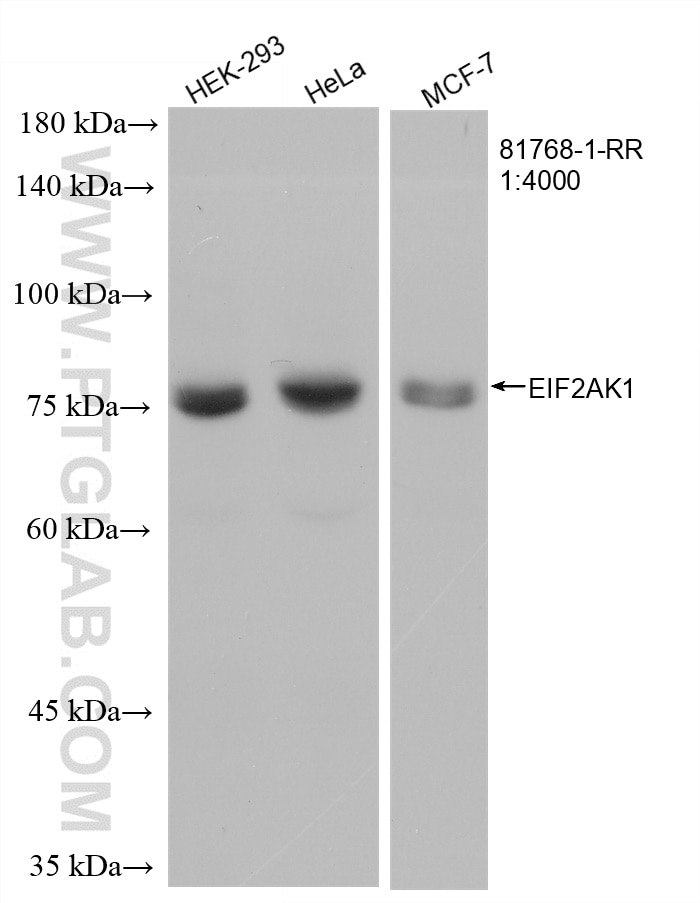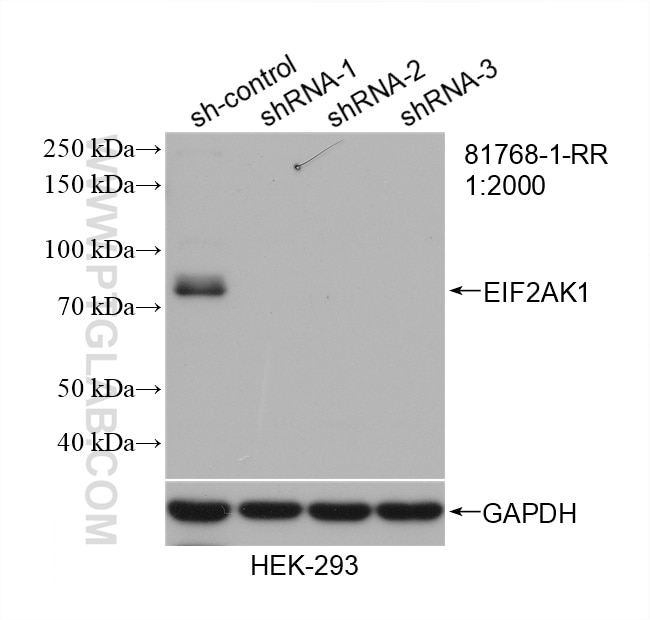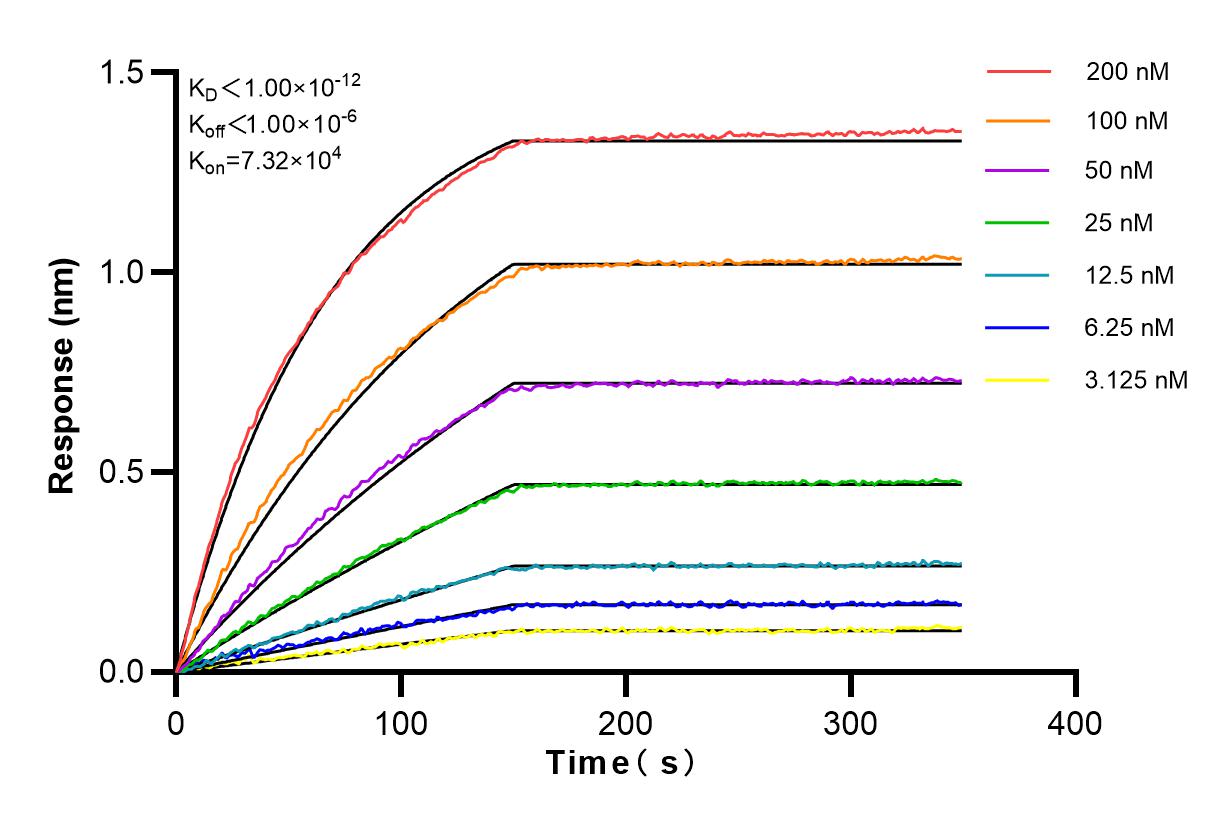Tested Applications
| Positive WB detected in | HEK-293 cells, HeLa cells, MCF-7 cells |
Recommended dilution
| Application | Dilution |
|---|---|
| Western Blot (WB) | WB : 1:1000-1:8000 |
| It is recommended that this reagent should be titrated in each testing system to obtain optimal results. | |
| Sample-dependent, Check data in validation data gallery. | |
Product Information
81768-1-RR targets EIF2AK1 in WB, ELISA applications and shows reactivity with human samples.
| Tested Reactivity | human |
| Host / Isotype | Rabbit / IgG |
| Class | Recombinant |
| Type | Antibody |
| Immunogen |
CatNo: Ag14236 Product name: Recombinant human EIF2AK1 protein Source: e coli.-derived, PGEX-4T Tag: GST Domain: 281-630 aa of BC006524 Sequence: FAEPTPEKEKRFGESDTENQNNKSVKYTTNLVIRESGELESTLELQENGLAGLSASSIVEQQLPLRRNSHLEESFTSTEESSEENVNFLGQTEAQYHLMLHIQMQLCELSLWDWIVERNKRGREYVDESACPYVMANVATKIFQELVEGVFYIHNMGIVHRDLKPRNIFLHGPDQQVKIGDFGLACTDILQKNTDWTNRNGKRTPTHTSRVGTCLYASPEQLEGSEYDAKSDMYSLGVVLLELFQPFGTEMERAEVLTGLRTGQLPESLRKRCPVQAKYIQHLTRRNSSQRPSAIQLLQSELFQNSGNVNLTLQMKIIEQEKEIAELKKQLNLLSQDKGVRDDGKDGGVG Predict reactive species |
| Full Name | eukaryotic translation initiation factor 2-alpha kinase 1 |
| Calculated Molecular Weight | 630 aa, 71 kDa |
| Observed Molecular Weight | 71 kDa |
| GenBank Accession Number | BC006524 |
| Gene Symbol | EIF2AK1 |
| Gene ID (NCBI) | 27102 |
| RRID | AB_2935578 |
| Conjugate | Unconjugated |
| Form | Liquid |
| Purification Method | Protein A purification |
| UNIPROT ID | Q9BQI3 |
| Storage Buffer | PBS with 0.02% sodium azide and 50% glycerol, pH 7.3. |
| Storage Conditions | Store at -20°C. Stable for one year after shipment. Aliquoting is unnecessary for -20oC storage. 20ul sizes contain 0.1% BSA. |
Background Information
Eukaryotic initiation factor 2a (eIF2a), which is a critical component in the formation of the translation initiation ternary complex (eIF2a/GTP/methionyl transfer RNA), plays a key role in the ER stress response. EIF2AK1, which is activated by heme deficiency and other stimuli, is a major kinase that phosphorylates EIF2-alpha. Phosphorylation of the alpha subunit of EIF2 downregulates protein synthesis in response to various stress conditions.
Protocols
| Product Specific Protocols | |
|---|---|
| WB protocol for EIF2AK1 antibody 81768-1-RR | Download protocol |
| Standard Protocols | |
|---|---|
| Click here to view our Standard Protocols |








